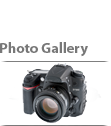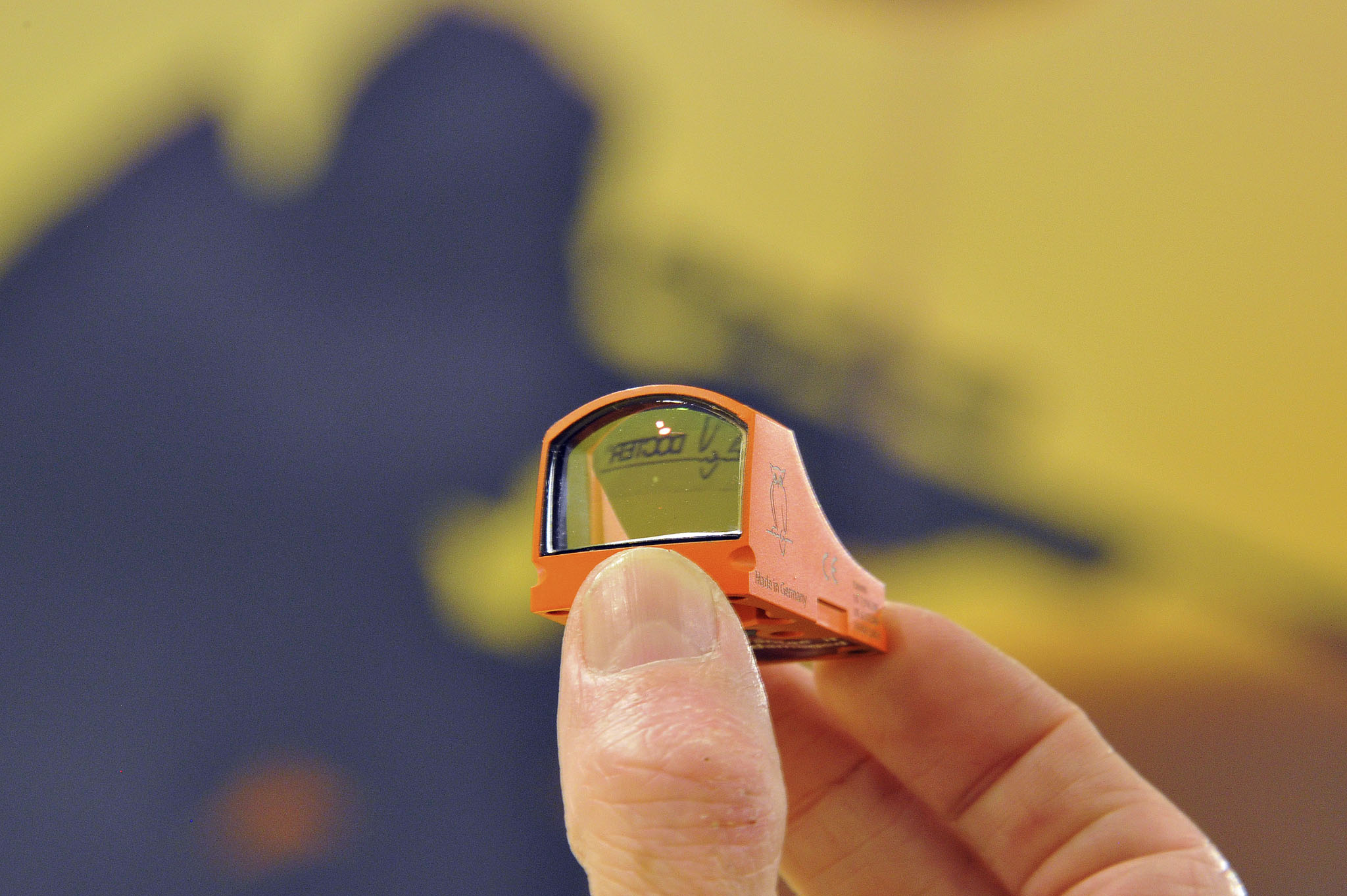The Docter 10x25 Compact is a prismatic binocular based on a roof prism design, offering an excellent compromise between size and optical performance, as well as adding a clean and compact appearance to the instrument, thanks to the straight tubes of the two telescopes, typical of the roof prism optical scheme.
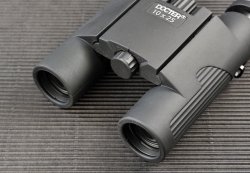
The 10x25 Compact, out of the box gives a very good impression; the entire binocular is rubber armored, with a pleasant to the touch non-slip material, and the design stands out for its excellent ergonomics, both for the handgrip, and the controls, located on the center bridge of the instrument.
The Docter 10x25 Compact is completely sealed, nitrogen filled and waterproof to a depht of one meter.
The size is not uncomfortably small, the overall dimensions are 105 x 120 mm, with a weight of 376 grams; when not in use, the Compact 10x25, thanks to the central bridge double hinge, can be folded on itself completely, becoming so small that it is possible to carry it inside a jacket pocket.
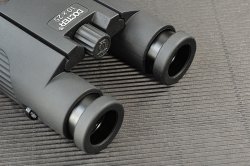
In practice, to operate the Docter Compact 10x25 the user must open the binocular to his interpupillary distance, which obviously can not be preset, and can be adjusted between 34 and 74 mm; since the bridge is double-hinged, it may take a bit of attention to correctly open the two optical tubes so that the instrument is immediately usable. We mentioned that the focus and diopter adjustment controls are located on the central bridge. The focus ring is relatively small but extremely fluid and features just the right amount of friction, is very fast in focusing (taking a single turn to focus between infinity and the minimum distance of 3 meters), and quite accurate. In the front portion of the bridge we find a much smaller knob for the diopter adjustment.
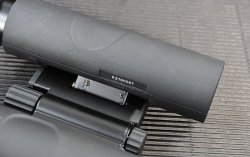
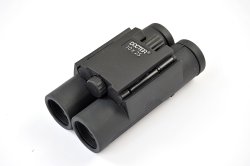
The image observed thru the instrument is very clear, with good contrast and excellent brightness, considering the high magnification ratio and relatively small diameter of the objective lenses, 10x25 mm. The color quality is slightly off towards the low end of the spectrum, giving a faintly yellow- orangish hue to the image, no doubt enhancing contrast, but we adapted to it instantly and it does not really disturb the observation. The eyecups can be extended by rotation and the 15mm eye relief (actually rather high value for compact binoculars), allows extended use without eye fatigue and also use with prescription glasses.
Color fringing is limited and confined, as in most medium-high range of binoculars, to the outer edges of the field of view. In the classic brick wall test, we can observe some barrel distortion; stargazing shows a perceptible coma in the outer third of the visual field. But we must take into account that we have a “compact” binocular in our hands, and that it also features a fairly attractive price, especially considering the competition; we must confess that we actually compared the Docter Compact 10x25 to the reference standard we normally would employ to evaluate “full size instruments”, and as such should be judged.
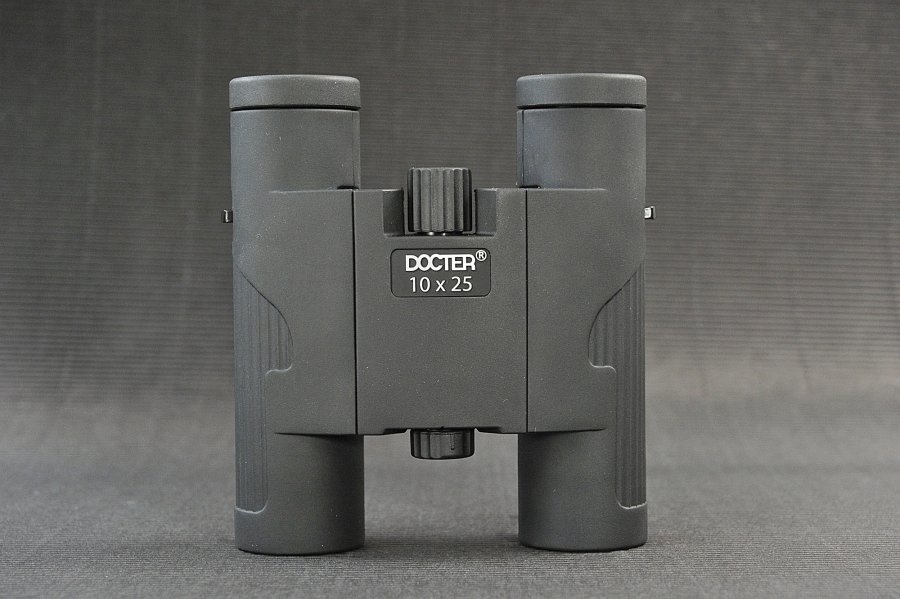
Finally, we must admit that we are not fans of the “10 x Magnification” so popular in compact binoculars, preferring by far a 8x, since the latter offer better stability and improved brightness in twilight and night use, but the Docter 10x25 Compact has proven to be an excellent tool, making us reconsider our opinion on both brightness and stability in compact devices due to its excellent ergonomics and optical quality.
